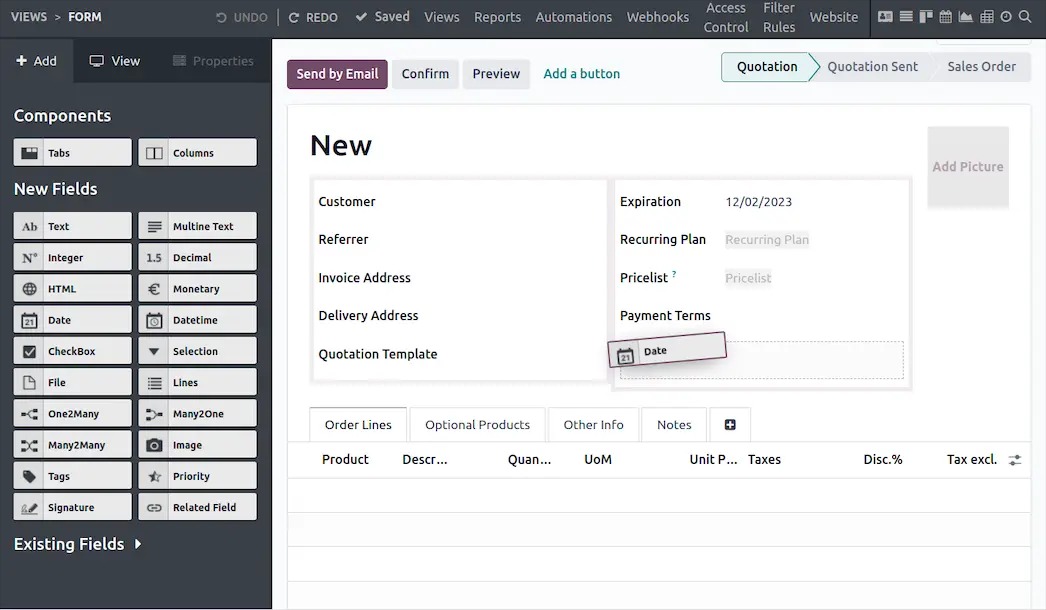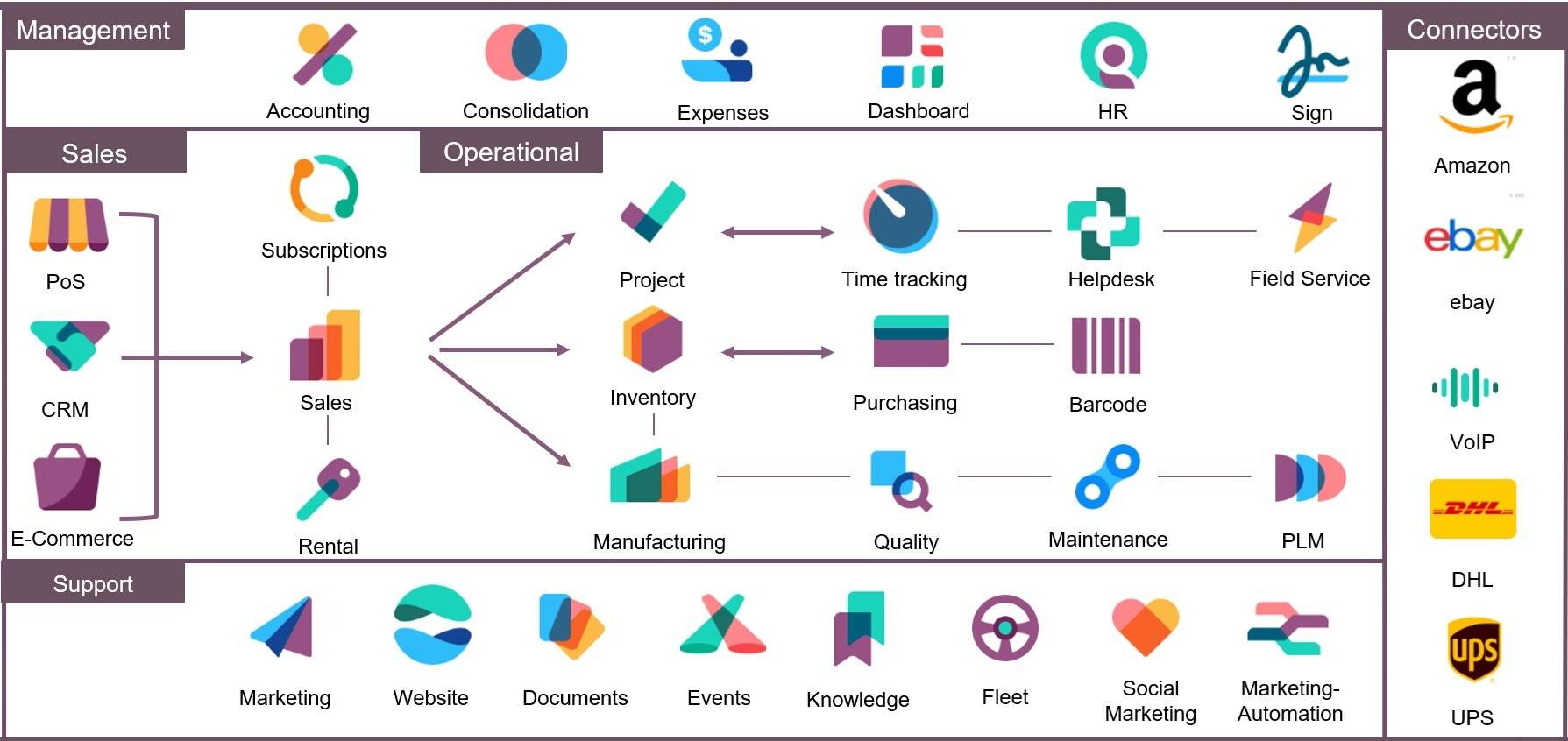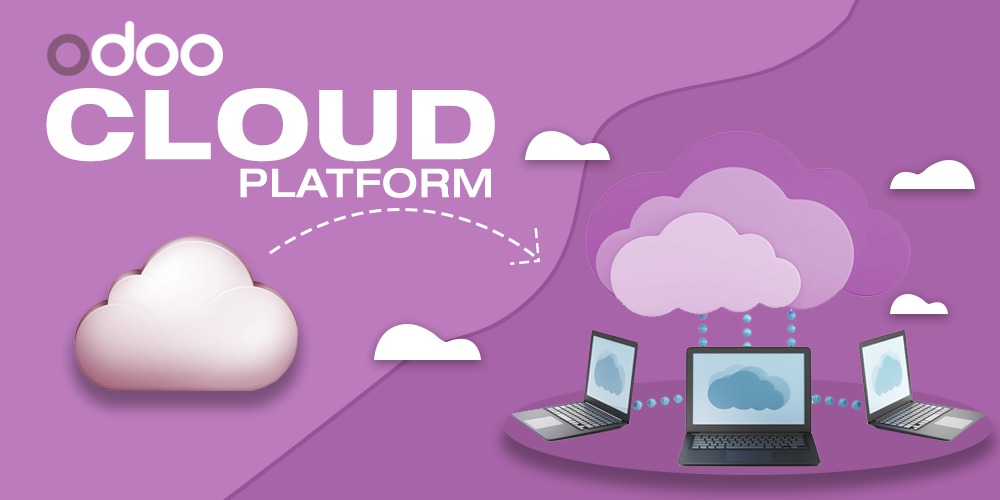Are you looking for an Odoo hosting to implement your Odoo system? Odoo which has powerful features and functionalities is an open-source ERP software.
There are a range of hosting ways to host Odoo you can choose. However, you need to consider carefully to ensure the efficiency based on your requirements because each Odoo hosting way has different features and guidelines to set.
Let’s explore how to choose the best-fit Odoo hosting with A1 Consulting in this article.
2 Different Ways To Host Odoo: Explore and Experience More
One of the highlighted features of Odoo is the flexibility. Thus, you can easily choose an Odoo hosting method which is suitable for your business. Here are two key ways to host Odoo system you need to know:

Self-Hosting
In this way, your Odoo is hosted on your server. It means that you need to prepare the IT infrastructure and server. This way is suitable for large enterprises with wealth. It allows you to have powerful control over the platform.
However, self-hosting requires a lot of technical expertise. It is flexible for you to use any application, certified or from a third-party vendor, or even build a new application from scratch. Of course, the installation of software or difficult development affects the cost and durability of the system.
Cloud Hosting
If you are SMEs with a lack of high technical experts and wealth, you can refer to cloud hosting. Obviously, your Odoo is hosted on the cloud. It is convenient for businesses to manage, communicate, and share data. However, it is not fully-customized as self-hosting.
There are three available kinds of cloud hosting, including:
- Odoo Online: It is a free cloud Odoo hosting which doesn't have the capabilities of customizations and less functionalities.
- Odoo.sh: It allows businesses to access a pre-configured Odoo server to collaborate, build automatic and backup databases.
- Private VPS Cloud: This way is more high-quality than others. You can control and customize your Odoo system based on your specific requirements.
Factors That Affect Odoo Hosting Requirements
As mentioned above, Odoo provides a range of hosting methods which allows businesses to choose the suitable one. Thus, before selecting Odoo hosting, you should consider and define your specific requirements for the Odoo system.
Here are several factors you need to know to build your needs:

- Number of users: Odoo provides several different plans with unique features and functionalities so that you can choose and buy the best-fit subscriptions. The number of users will affect the hardware requirements and the price for each member. It means that more users need more resources, such as CPU, memory, and disk space as well as more licenses to use.
- Modules: You need to define why you need to use Odoo and what you want to use. Odoo has many modules but you don’t need to establish all if not necessary. Choosing the essential modules help you optimize your system and run smoothly.
- Data: What is the amount of your data you want to transfer to? The amount of data you store in Odoo will impact on the hardware requirements. It is obvious that more data will require more disk space and database and vice versa.
- Kick-off scenario: You may need Odoo experts to design the development scenario about Odoo server specs. With cloud hosting methods, it may waste less processing power and RAM than on-premises hosting.
- Operating system: If you use self-hosting, your operating system will affect your hardware requirements. Each operating system will require different resources to operate.
You should also read this article: Odoo.sh, Odoo Online, and Odoo On-Premise Overview: Which Differences?
How to Choose Your Best-suited Hosting Type?
Odoo is excellent for businesses to manage business operations as well as accelerate productivity. You can implement Odoo Enterprise apps on 3 different platforms, including Odoo Online, Odoo.sh (dedicated cloud), or On-Premises (using your own infrastructure). But what makes them stand out and help you select the option which is suitable for your business requirements? The answers are below.
Odoo Online
Odoo Online, which allows businesses to use it in a few seconds to use anywhere and anytime, is known as SaaS (Software as a Service). Its advantages and disadvantages as well as a guide to use it are shown here.
Odoo Online Strong Points
It is convenient for businesses to utilize Odoo Online without handling the infrastructure and hardware resources. Everything is operated in the online infrastructure of the Odoo provider. Let’s see several advantages of Odoo Online.
- Assemble and operate simply: You don't need to invest much money for security, updates, maintenance or server configuration. All of them are supported by your Odoo provider.
- Frequently update version: Annually, Odoo has launched the latest version which aims to bring the advanced functionalities. Now, Odoo 18 has enhanced features, being updated for all programs hosted on the instance.
- Automated backups of your database: Odoo automatically backs up data that is kept for a maximum of 7 days. Thus, you can easily use or restore your database within 7 days.
- Support on-going: If you have problems during operation, you will get the committed assistance of Odoo specialists for any problems or inquiries you may have regarding the system.
Odoo Online Drawbacks
In addition, Odoo Online also has several disadvantages you need to consider before choosing Odoo hosting. Let’s explore:
- Difficult to manage data privacy: Since the data is stored on a third-party server, businesses are concerned about handling confidential or sensitive information.
- Less customization: You can only make certain adjustments in Odoo Studio.
- No control over server uptime and performance: They are run by Odoo so users can not control the performance. Additionally, since all users share the server resources, the server may slow down or stop responding if there are many requests.
- Limited to basic Odoo apps: Odoo Online only offers certain apps and functions.
- No platform or tool integration options: Odoo Online cannot connect with other programs such as accounting software, BI tools, or e-commerce platforms.
Guide to Use Odoo Online

Odoo Online is always upgraded automatically to the latest Odoo releases. You can install any certified or available application on Odoo Online. All applications are developed, maintained and upgraded by Odoo SA. You need to know Odoo Studio which allows you to easily customize any view and report, create new applications or even perform automated actions (non-code customization).
On the other hand, you cannot install third-party applications or change the source code that is not allowed on Odoo Online. Furthermore, additional services from hosting, maintenance, support, backup to upgrade are all included in the price of Odoo Enterprise. Thus, you can control your budget without unexpected expenses.
On-Premises
With Odoo On-premises, businesses can control their Odoo system as well as control the performance. Additionally, it lets them set up and customize this system based on their requirements.
Odoo On-Premises Advantages
Unlike Odoo Online, Odoo On-Premises allows businesses to deploy Odoo Enterprises on theirr server. Therefore, it has more advantages:
- Full control over the framework: You can control every process from development to operations and maintenance when using Odoo On-premises.
- Enhanced data protection: Since it is developed on your own server, your data is highly secure and safer with separate security measures and processes.
- Flexible customization: It is easy for you to tailor your Odoo system. You can make changes, develop further or integrate with other systems.
- No restrictions on application usage: You can use any program or feature in the Odoo ecosystem you want without any restrictions because you have full control over the system.
- Odoo Community edition: You can use Odoo Enterprise without being restricted by the on-premise hosting type.
Odoo On-Premises Drawbacks
However, using Odoo On-premises also brings several challenges for businesses. It is more suitable for large enterprises than SMEs.
- Hardware and software costs: You will have to invest quite a bit in hardware servers, hosting services for servers and storage devices while using Odoo On-Premises hosting.
- High tech knowledge: To manage and maintain the system, including performing updates, backups and security fixes, you will need technical staff. This requires a level of technical expertise that many companies may not have.
Guide to Use Odoo On-Premises

Odoo Enterprise can be deployed on a dedicated server with its entire hosting infrastructure. Odoo On-premises is only suitable for businesses with advanced technical knowledge as Odoo SA cannot provide any guarantees or any Service Level Agreements regarding the robustness, performance and scalability of your infrastructure.
Additionally, you also hire the Odoo partner for deployment support. You need to consider many aspects to use this Odoo hosting, which affect the robustness and cost of your software installation. When using Odoo On-Premises, you have full control and autonomy over your installation.
Odoo.sh
Odoo.sh which allows you to deploy your cloud platform is known as a PaaS ( Platform as a Service). It is convenient to implement it with several clicks.
Odoo.sh Advantages
Odoo.sh is also operated online on the server of a third party. Let’s browse several strengthens when implementing this Odoo hosting.
- Easy to install and operate: You don't need to worry about security, updates, maintenance or server configuration.
- No restrictions on the use of the application: You can install any module available in the Odoo App Store or develop additional applications if needed.
- Regular automatic backups of your database: Like Odoo Online, Odoo.sh automatically backs up and updates data continuously and keeps it for up to seven days.
Odoo.sh Drawbacks
Odoo.sh also has several disadvantages like Odoo Online. They are:
- Limited customization options: Similar to Odoo Online, Odoo.sh has less customization options. It will require the assistance of developers if you want to add new features or make specific changes to the software.
- Limited ability to manage server uptime and performance: Unlike Odoo On-premises, Odoo.sh cannot directly control server performance or uptime because Odoo.sh is hosted on Odoo's servers.
- Data privacy concerns: Privacy of sensitive or confidential information may be threatened because it is hosted on a third-party server.
Guide to Use Odoo.sh

You can easily access Odoo modules. The data is backed up in separate data centers and you can download any backup within 3 months. Additionally, Odoo.sh gives you the flexibility to choose the best deployment architecture from the number of employees, storage capacity to the number of staging environments. It is easy for you to adjust the configuration as your needs change and scale this system as you grow.
Conclusion
Choosing a hosting environment is an important decision to make before deploying Odoo. You need to consider all Odoo hosting choices to choose the best-fit one. As we know, each hosting platform has different features so that you can choose it through defining your specific requirements carefully.
If you don't know how to choose the right Odoo hosting, you can find the Odoo partner to support you. A1 Consulting is one of reliable Odoo partners in Malaysia with 500+ talented Odoo experts. We have practical experience and vast expertise to consult and implement the Odoo system for multiple industries from SMEs to large enterprises. Don't hesitate to contact us!
